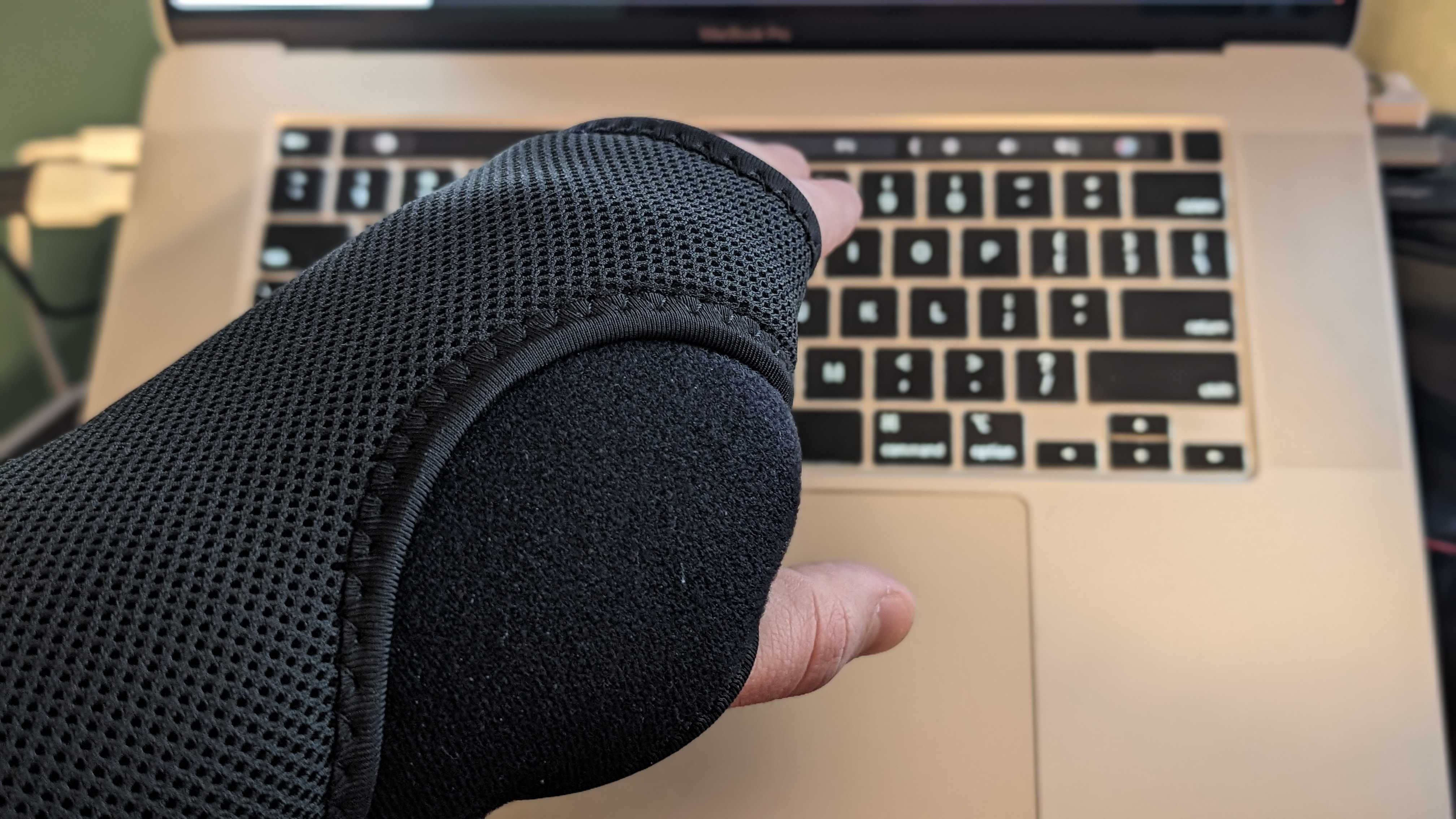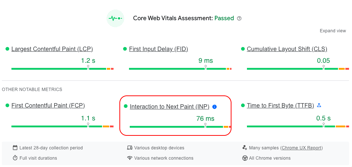Digital Accessibility: Let's make it personal
One of the biggest challenges I see in educating people about digital accessibility is that unless you know someone or you yourself experience difficulty through either a temporary or permanent disability it's often hard to see the level of severity of an accessibility problem. That personal story matters. So I'm actually going to take a moment to try to make this hit home while it's least convenient for me.
Something I often try to do when advocating for people to build things in a digitally accessible way is to make it personal. One way that I will do it is highlighting temporary disabilities. Temporary disabilities are things like you are currently holding a baby, so you just have one hand free and it's hard to move around the room, you fell and injured yourself making it an uncomfortable experience to use your mouse or keyboard, you've lost your reading glasses, you are recovering from a car accident temporarily or permanently affecting your mobility, vision, or any number of faculties. The point is every single one of these things Is something that could happen to anyone and impact their ability to work, socialize, and enjoy the tech and content they currently use.
So I tell people you're not just solving for folks who have hearing loss, are blind, or wheelchair-bound, you're solving for the future you and your family in the future because regardless of whether or not they become deaf, blind, wheelchair bound at some point the same technology designed to make the web a better place for those folks will make the web a better place for you and your family.
I said that this was the least convenient time for me to talk about this. The reality is I'm writing this using the Voice typing feature inside of Google Docs today, while also working on a presentation that I have to give tomorrow using the same tool to edit what I'm going to say. I'm not doing it for fun, I'm doing it because over the last 2 months I've started to experience some significant pain in my wrist and fingers when moving any of the muscles in my hands. I've experienced carpal tunnel like symptoms before and I know that arthritis runs in my family. As a web developer not being able to use my hands without pain is a scary thought, while I'm pretty sure that this pain will pass after giving my hands some rest, there could come a time in my life where that pain is my normal state of being and I instead have brief moments where my hands feel fine. Being able to type quickly is an important thing for a developer, a career impacting thing.
While yes I can use specific apps with my voice, in very limited ways such as typing, it doesn't enable me to navigate, move slides, type code with brackets, use code completion tools, enter console commands easily. I didn't do anything special except work in a career where I needed to type. It's not a situation where it's easy to actively prevent this kind of temporary and potentially long-term disability. I didn't even know arthritis ran in my family until my dad was diagnosed in retirement.

There's of course things I can do now like trying to use voice typing more and keyboard typing less, wear a wrist brace from time to time, take painkillers, but because I've built up a skill for keyboarding, it is drastically faster and more accurate for me to type with my hands - So sometimes I'm gonna do it through the pain, because the alternatives just aren't there yet and the apps and tools we use on a day to day basis aren't built accessible enough. Your UI might literally be inflicting physical pain on someone, and in some cases even emotional pain for someone, like having a store slam its doors on you every-time you wanted to shop.
The question I have for you:
How will you feel if one day the very things that you've built, you can't use, use without pain, or otherwise experience, because you didn't take the time or didn't want to invest money in making them accessible?
Pause and sit with that for a minute, ask yourself the same question but instead of it being you it's your children.
As I'm working on my slides and my talking points I'm thinking to myself: You're always told to break a project or To-do down to smaller tasks to make it more manageable. When the things that you wouldn't even put on your to-do list become the hard part of the project, that shouldn't be the moment that you choose to start advocating, to start learning, to start building better.
You might think well I don't expect the website or app I built today to even exist in the state that I built it in five or 10 years from now, because things are always getting redesign. That may be true but if you didn't lay a foundation and a culture within your company, if you didn't make it so someone has to make a conscious choice to make it less accessible, then you still contributed to it.
So if by chance I've motivated you to try doing better, I want to point you to a resource that I and a lot of great colleagues at HubSpot created on digital accessibility. It's not a be-all end-all resource, but it's a very good starting point for beginners, and while it contains HubSpot specific content the majority of it is general and you can apply it to any web development project, it also links out to a ton of other great resources to learn more and deeper. I'm proud of all the work and iteration done on this resource and want to see it help people.




